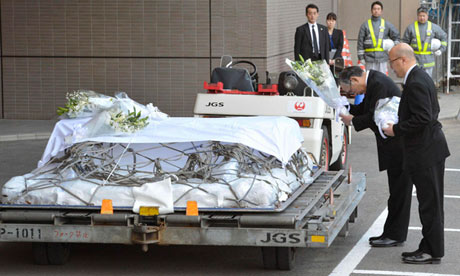The Algerian army made mistakes in its handling of the hostage crisis at a gas plant deep in the Sahara desert in which dozens of foreign workers, including six Britons, were killed, the country's foreign minister has admitted.
Speaking after international criticism of the four-day offensive by Algerian troops against Islamist fighters at the In Amenas gas facility, Mourad Medelci also conceded that his government needed international help to help it fight terrorism.
Algeria's decision to refuse foreign offers of help in handling the crisis, and to send the army to fire on vehicles full of hostages, drew widespread international criticism. At least 81 people are now belived to have died during the seige, including British, American, French, Japanese, Norwegian and Romanian workers.
The crisis began on 16 January when the jihadist group Signers in Blood, which is affiliated to al-Qaida, attacked the facility run by BP, Statoil and the Algerian state oil company. Some foreign workers were killed in the initial assault, but scores of others hid around the plant and its residential compound. The gunmen searched the plant and tied up those they found and rigged them with explosives.
The following day the Algerian army attacked the plant fearing the gunmen were trying to move the hostages out of the country. Some of the bodies found by the Algerian troops were badly burned, making it difficult to identify them.
Speaking at the World Economic Forum in Davos, Switzerland, Medelci said: "We are in the process of assessing our mistakes. In that assessment we are leaning more towards establishing that the operation was a success."
He said Algeria would reinforce security measures at sites where foreigners operate, and insisted they would "continue to work in Algeria and that is the best way to answer the terrorists".
He also defended the government's decision to attack rather than negotiate. "Faced with such an attitude, it's not just words that solve the problem. It's action," he told the Associated Press on Friday.
But he admitted that Algeria, which has experienced decades of internal extremist violence, needs support in its fight against international terrorism.
International investors and foreign workers were the target of the attack rather than Algeria, he said.
Six British nationals and a British resident are belived to have been killed in the seige.
Five names have been made public, Kenny Whiteside, 59; Paul Morgan, 46; Sebastian John, 26; Garry Barlow, 49; and Carson Bilsland, 46. Carlos Estrada, a Colombian national who worked for BP and lived in London is also believed to have died.
A further 22 Britons involved in the crisis have returned to the UK, the Foreign Office said.

No comments:
Post a Comment